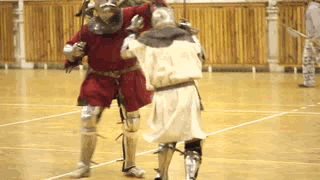Malik
 Auror
Auror
You can hit a leg fairly low with a high hanging guard out of, say, tierce or sixte.
Hanging point out of tierce and sixte would be seconde and octave, respectively.
I need to quit posting before my second cup of coffee.

 Myth Weaver
Myth Weaver
 Inkling
Inkling Scribe
Scribe